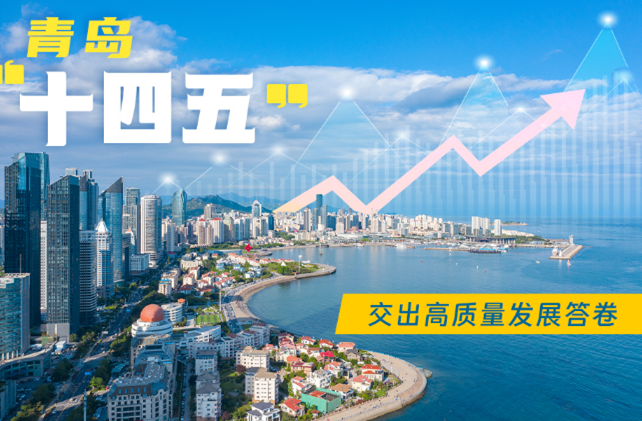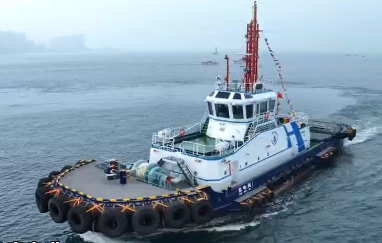Foreign firms deepen roots, strive for localization

Employees work on a production line at Edwards' manufacturing plant in Qingdao, Shandong province, on May 16. LIU CHUAN/FOR CHINA DAILY
Foreign corporations are leveraging the industrial ecosystem, policy support and growing market potential of China to drive innovation and sustainable growth in the country.
From pharmaceuticals to advanced manufacturing, companies like AstraZeneca, Edwards and Hexagon are not only expanding production, but also embracing localization strategies to navigate global challenges and tap into China's high-quality development.
On May 16, workers were busy installing circuits and laying pipelines at AstraZeneca's inhalation aerosol production base in Qingdao, Shandong province, which stands as a testament to its long-term confidence in China.
The $750 million project, set to begin operations by 2028, will feature three assembly lines and one filling line, producing 54 million respiratory medicine units annually.
"This base is a pivotal step in AstraZeneca's global supply chain strategy and our commitment to Chinese patients," said Lin Xiao, general manager of AstraZeneca's China branch, while attending a ceremony marking the completion of the main structure of the first phase facility in April.
The investment is part of the United Kingdom-based biopharmaceutical firm's $1.7 billion manufacturing push in China since 2023, complementing its Wuxi and Taizhou bases in Jiangsu province. Beyond production, the company has established a regional headquarters in Qingdao, focusing on rare diseases and respiratory health, and launched a Qingdao fund under the AstraZeneca-CICC Healthcare Industrial Fund to nurture local innovation.
"The Qingdao facility, designed as a carbon-neutral plant from inception, will rely entirely on green electricity, aligning with China's dual-carbon goals," said Yuan Xuyi, general manager of the Qingdao plant of AstraZeneca.
"We chose Shandong because of its robust industrial foundation as a major economic province, complete supply chains and the government's sincere commitment to cooperation. Shandong's business environment continues to improve, with efficient government services in project approvals and policy support, enabling companies to invest with confidence," Yuan said.
Shandong, a coastal economic powerhouse, has emerged as a preferred destination for foreign corporations, hosting 19,000 foreign-funded enterprises and 943 projects by 236 Fortune 500 firms — 179 of which operate 412 projects in Qingdao alone, according to data released at the news conference held by the information office of Shandong Provincial People's Government at the construction site of AstraZeneca's Qingdao base on May 16.
"We will bolster policies, upgrade the business environment and spare no effort to help multinationals invest in Shandong confidently," said Zhang Qingwei, deputy director of the Department of Commerce of Shandong Province.
The province has been actively enhancing services for foreign businesses by organizing high-profile events such as the Qingdao Multinationals Summit, Hong Kong-Macao-Shandong Week and Singapore-Shandong Week. It has also established government-enterprise communication mechanisms, including the provincial government economic advisory council, multinationals roundtable and foreign-funded enterprises symposium.
Additionally, Shandong has improved its cross-departmental coordination mechanism for handling complaints from foreign-invested enterprises, setting up 196 complaint-handling agencies to safeguard the legitimate rights and interests of investors.
The province's policies also include subsidies for tech upgrades.
Edwards, a UK-based vacuum technology firm, has seen 30-fold growth since entering Qingdao in 2012. During its decade in Qingdao, Edwards has undergone three expansions, with the fourth phase commencing in late 2022.
"Shandong's talent pool, supply chains and business environment have significantly facilitated our growth," said Zeng Yong, general manager of Edwards' Qingdao company.
Zeng credited local authorities for "turning challenges into opportunities through responsive governance". For example, the company has received about 6 million yuan ($835,000) yearly in government subsidies for tech upgrades and phasing out obsolete capacity over the past three years.
"We'll continue increasing investments — not just relocating production but also expanding research and development capabilities here," said Zeng.
Similarly, Hexagon, a Sweden-based digital reality solutions provider, invested over 50 million yuan to add two precision instrument lines in Qingdao last year.









 Play
Play  Play
Play